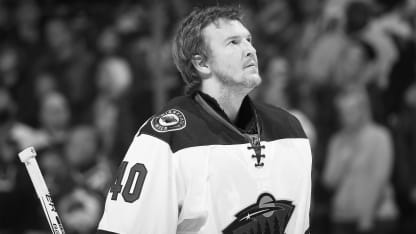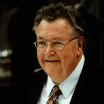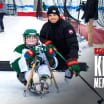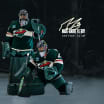"Being physically ready for it is the first part. But these first few days, and throughout all of camp, you're not trying to make a team. Everybody knows you're here. It doesn't mean it's not important to go out there and work as hard as you can and work along with everyone else. But as a goalie, you want to try and get back into that faster tempo and your timing on plays.
"Guys are going to start shooting through guys more. There's things that start to happen that don't happen during the summer; the five-on-five stuff, in-zone, guys are skating faster. The biggest thing is, those shots coming from the angles, through legs, through bodies that you've really got to start working on your angles and finding those pucks, each day, just trying to re-establish your game and what you need to do to prepare for the season. That's what it comes down to, just worrying about what I need to do to be ready and not trying to impress anybody.
"My job is to stop the puck; it doesn't change, no matter who is coaching. Bruce knows how to win and he knows how to put a winning product on the ice. That's going to allow me to stop the puck, it's going to give me a better chance to do my job. That's really the only way the coaching change is going to affect me. I think our d-zone is going to be real good and that's going to allow me to stop the puck.
"My family and I came to Minnesota [four weeks] ago to get into a routine, to get them settled and into their programs. That just becomes a priority. But my days are the same [as they were without kids], the timing in the morning, you go train on the ice then off-ice, that's at this time of the year, becomes the most important thing while you're there. After that, you just don't do much. It's about going home and seeing the kids.
"It's always tough, I find, when we start to get back into it with the longer days, you just don't see [your kids] as much. You get used to seeing them all the time and being home all the time in the summer. It's always tough on myself and on my wife and on my kids as well, trying to re-adjust to not seeing them as much.
"The actual travel day gets a lot easier as they get older. It's a little bit hectic with their ages right now, but it's nice, we have our home here with all of our stuff ready to go and we have a home back in Kelowna, [British Columbia]. This was the first time, maybe in my entire career, where we were able to just pack a couple suitcases and just get on a plane and come here and everything was ready to go. This was the most seamless transition that we've ever had, for sure."



















